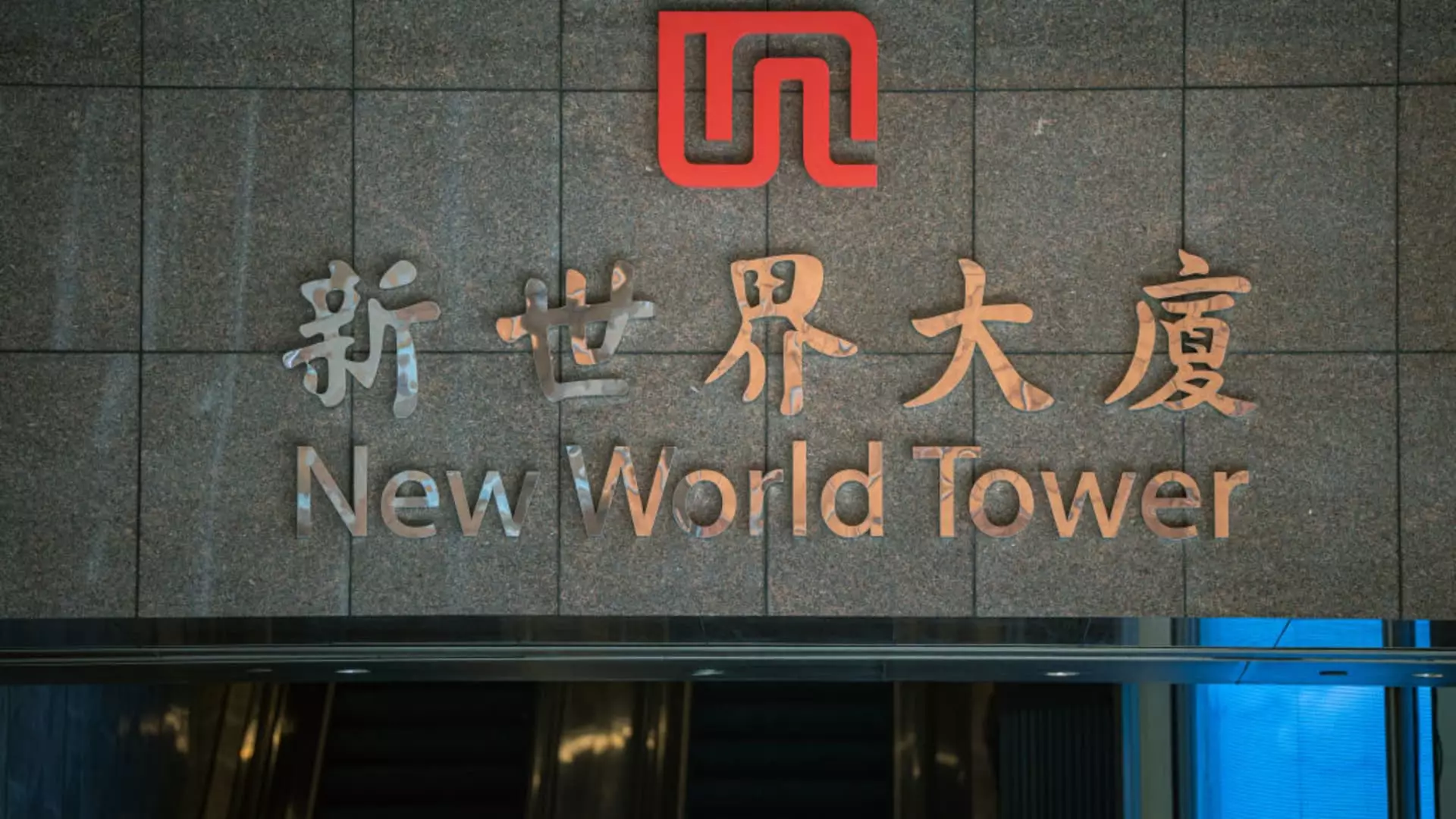In a surprising turn of events, New World Development, one of Hong Kong’s prominent property conglomerates, has experienced significant market reactions following the resignation of its influential co-founder, Adrian Cheng. Upon his exit, the company’s shares jumped by an impressive 23%, a clear signal that investors may view this transition as an opportunity rather than a setback. The sudden departure, attributed to Cheng’s need to dedicate time to public service and personal commitments, initiated a temporary trading halt to allow for crucial announcements to be made.
In light of Cheng’s resignation, Eric Ma Siu-Cheung, formerly the Chief Operating Officer, has ascended to the role of CEO. This decision to appoint an external figure to lead the family-dominated enterprise marks a notable deviation from the historical practice of keeping leadership within the family lineage. This change is not just symbolic; it highlights the increasing recognition of corporate governance as vital in navigating the challenges facing the Hong Kong real estate sector. Investors are likely hoping that Ma’s leadership will bring fresh perspectives and innovative strategies to a company grappling with substantial financial hurdles.
New World Development has not been without its difficulties. The company recently disclosed expectations of a staggering loss within the range of HK $19 billion ($2.4 billion) to HK $20 billion ($2.6 billion) for the financial year ending in June. This anticipated loss is symptomatic of broader issues affecting the real estate landscape in both Hong Kong and mainland China, where declining sales and rising debt levels loom large. The challenging market conditions have forced many companies in the sector to reevaluate their strategies and governance structures.
Alicia Garcia-Herrero, Chief Economist for Asia Pacific at Natixis, emphasized the significance of effective corporate governance in her analysis of New World’s situation. She pointed out that the reliance on familial succession in leadership roles may not be the most effective strategy, particularly when navigating turbulent market conditions. Instead, hiring leaders with proven expertise can create a more resilient organization.
Market Recovery and Economic Stimulus
Adding a layer of complexity to the scenario is the context of recent governmental stimulus measures enacted in China. The rally in New World’s shares is partially attributed to this economic backdrop, which has also seen a surge in the broader Hong Kong and Chinese equity markets. These stimulus packages aim to bolster the flailing real estate sector, addressing myriad economic challenges ranging from employment concerns to the country’s aging population. With the central bank’s initiatives to stabilize the housing market, investor confidence may be rekindling.
Looking Ahead: Opportunities and Challenges
As New World Development navigates this leadership transition amidst financial turmoil, the company stands at a crossroads where strategic decisions will be critical. The new CEO’s ability to foster effective management practices and align with national economic strategies could be pivotal for the firm’s recovery. Ultimately, this situation serves as a reminder of the dynamic nature of the property market in Asia, where adaptability and governance will be key determinants of success in an era marked by volatility and change.

